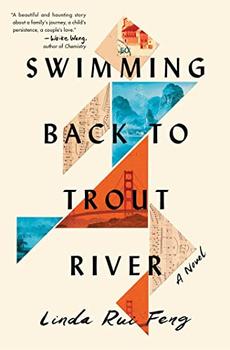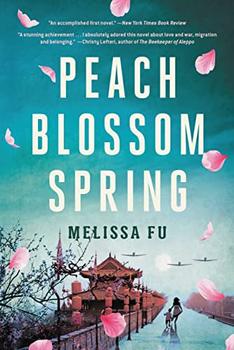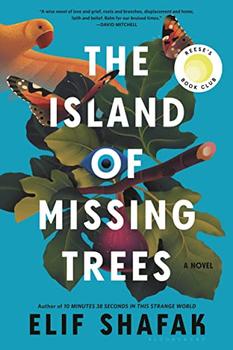Summary | Excerpt | Reviews | Beyond the book | Read-Alikes | Genres & Themes | Author Bio

A lyrical novel set against the backdrop of China's Cultural Revolution that follows a father's quest to reunite his family before his precocious daughter's momentous birthday, which Garth Greenwell calls "one of the most beautiful debuts I've read in years."
How many times in life can we start over without losing ourselves?
In the summer of 1986 in a small Chinese village, ten-year-old Junie receives a momentous letter from her parents, who had left for America years ago: her father promises to return home and collect her by her twelfth birthday. But Junie's growing determination to stay put in the idyllic countryside with her beloved grandparents threatens to derail her family's shared future.
What Junie doesn't know is that her parents, Momo and Cassia, are newly estranged from one another in their adopted country, each holding close private tragedies and histories from the tumultuous years of their youth during China's Cultural Revolution. While Momo grapples anew with his deferred musical ambitions and dreams for Junie's future in America, Cassia finally begins to wrestle with a shocking act of brutality from years ago. In order for Momo to fulfill his promise, he must make one last desperate attempt to reunite all three members of the family before Junie's birthday—even if it means bringing painful family secrets to light.
"A beautifully written, poignant exploration of family, art, culture, immigration, and most of all, love," (Jean Kwok, New York Times bestselling author of Searching for Sylvie Lee) Swimming Back to Trout River weaves together the stories of Junie, Momo, Cassia, and Dawn—a talented violinist from Momo's past—while depicting their heartbreak and resilience, tenderly revealing the hope, compromises, and abiding ingenuity that make up the lives of immigrants.
The story reflects the natural ebbs and flows, the minor entanglements and ripple-effect impacts that each person has upon each other as the moments of life unfold. In this sense, it is surprising that Feng manages to keep the reader's attention throughout, but this is accomplished through the care and thoughtfulness in her writing, and the subtle love and respect that we come to feel for the characters. These elements draw us back to keep reading Feng's beautiful phrases and to keep wondering with interest what will happen next...continued
Full Review
 (525 words)
(525 words)
(Reviewed by Jennifer Hon Khalaf).
 In Swimming Back to Trout River, Dawn and Momo are united by their love of music during the turbulent years of the Cultural Revolution, particularly Western classical music. There is a special significance attached to a bust of Beethoven within the novel. Beethoven was seen as a revolutionary symbol throughout 20th century China, since his personal hardships resonated with Chinese cultural ideals about struggle and triumph. Yet, Beethoven, along with all other Western music, was banned during the 10 years of the Cultural Revolution (1966-1976).
In Swimming Back to Trout River, Dawn and Momo are united by their love of music during the turbulent years of the Cultural Revolution, particularly Western classical music. There is a special significance attached to a bust of Beethoven within the novel. Beethoven was seen as a revolutionary symbol throughout 20th century China, since his personal hardships resonated with Chinese cultural ideals about struggle and triumph. Yet, Beethoven, along with all other Western music, was banned during the 10 years of the Cultural Revolution (1966-1976).
Prior to the onset of the Cultural Revolution, there was much cultural interchange between China and the West, with Shanghai dubbed "the Paris of the East" as early as 1869, and the introduction ...

If you liked Swimming Back to Trout River, try these:

by Melissa Fu
Published 2023
A "beautifully rendered" novel about war, migration, and the power of telling our stories, Peach Blossom Spring follows three generations of a Chinese family on their search for a place to call home (Georgia Hunter, New York Times bestselling author of We Were the Lucky Ones).

by Elif Shafak
Published 2023
A rich, magical new novel on belonging and identity, love and trauma, nature and renewal, from the Booker-shortlisted author of 10 Minutes 38 Seconds in This Strange World.